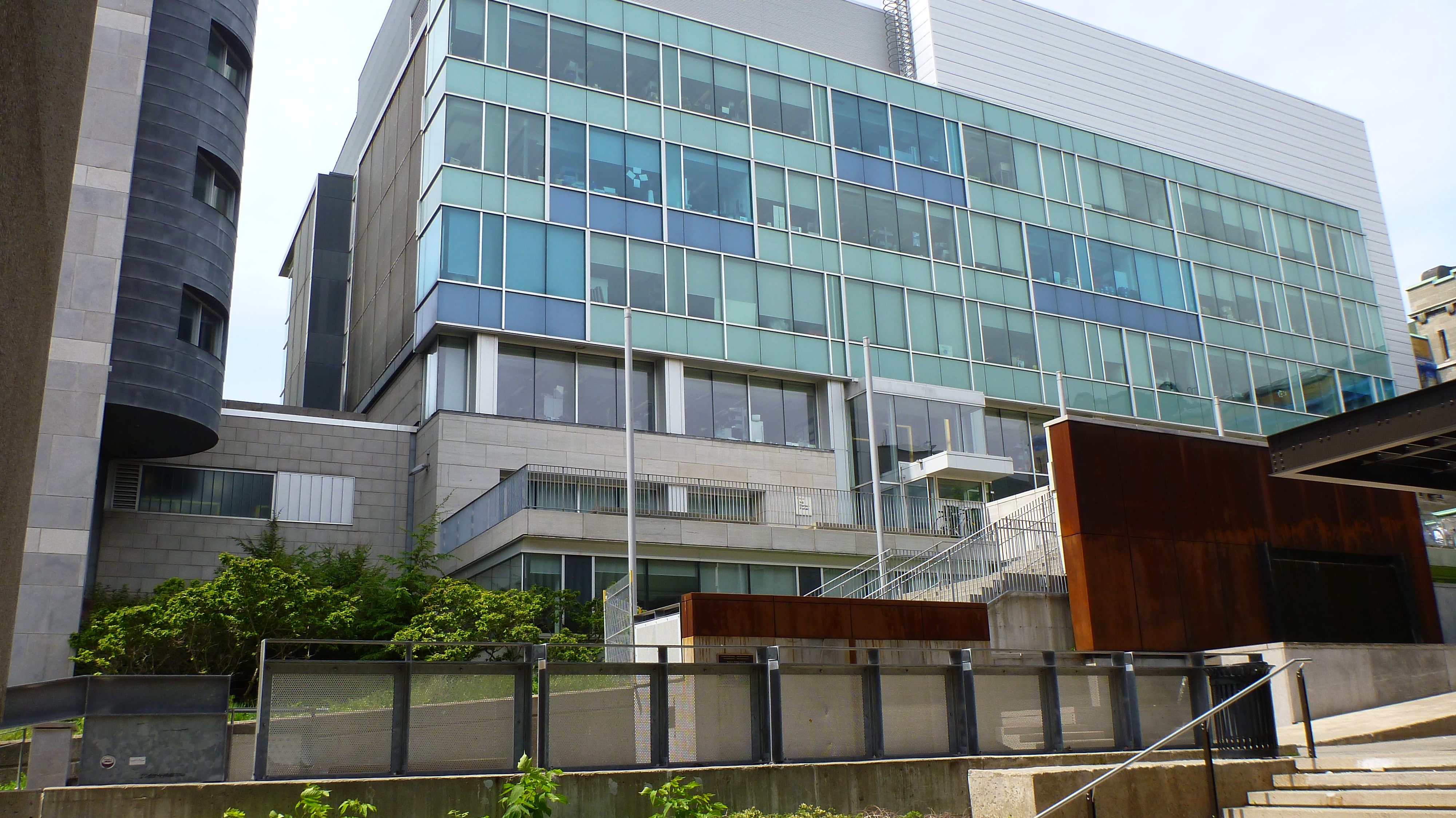Clinical Program
What is diabetes?
Diabetes is a condition that inhibits the body's natural ability to produce and/or respond to insulin. This hormone is produced by the pancreatic islets of Langerhans. These clusters of cells make up only 2% of the pancreas while the rest is comprised of cells responsible for producing digestive enzymes. Without insulin, the body's blood sugar levels fluctuate dangerously. Patients with diabetes are at high risk of developing blindness, stroke, kidney failure, cardiovascular disease and pain from nerve damage. Of the nearly 3 million Canadians afflicted with diabetes, over 300 000 have type 1 (T1D) autoimmune form of the disease. Often referred to as juvenile-onset, and commonly diagnosed in childhood, T1D is the result of the destruction of the insulin-producing islet cells by the immune system, thus impairing insulin production and disrupting blood sugar regulation. Type 1 diabetes cannot be prevented and requires long-term medical treatment, careful blood glucose monitoring and daily insulin injections.
What is Islet Transplantation?
Giving back the cells that produce insulin is known as beta-cell replacement, and is a current treatment option for people with T1D that are not able to detect severe low blood sugar events, referred to as hypoglycaemia unawareness. Beta-cell replacement may be accomplished in two ways. The first is through transplantation of the whole pancreas, which is obtained from a deceased individual who has donated their organs. However, this major surgery carries significant risks and often involves extended time in the Intensive Care Unit. Alternately, islet transplantation is a minimally invasive type of beta-cell replacement. Once a pancreas is donated, the islet transplant team begins the delicate task of separating the islets from the rest of the pancreas. The isolated islets, which are extremely small, are then infused into the liver of a recipient with T1D through a small catheter, and without the need for surgery. Patients recover quickly and are discharged from the hospital within a few days after the procedure. After receiving these islets, the body will be capable of producing its own insulin, thus restoring normal blood sugar levels without having to rely on daily insulin injections. In addition, the hypoglycaemia unawareness becomes reversed in the majority of islet transplant patients.
The McGill University Health Centre (MUHC) has been developing the expertise to conduct this procedure for the past decade, and it is the only Centre in Eastern Canada and one of only a dozen in North America capable of isolating and transplanting human islet cells. In 2015, the MUHC conducted the first islet cell transplant in Quebec and continues to be a leader in cellular therapy.
Am I an Eligible Candidate?
You may be eligible for islet transplantation if you meet the following inclusion criteria:
- You are between 18 to 70 years of age.
- You were diagnosed with T1D more than 5 years ago.
- Currently perform blood glucose checks at least 3 times per day.
- You are on insulin therapy, and require less than 60 units of insulin per day.
- Females who are not currently pregnant, nor planning to become pregnant, and not currently breast-feeding.
- Frequent visits to your diabetes care team to control blood sugar levels.
- Have a complication due to your diabetes.
- Reduced awareness of hypoglycemia (difficulty detecting low blood sugar levels).
- Difficulty maintaining a HbA1c <7.0% (glycosylated hemoglobin).
Persons who meet any of these exclusion criteria are not eligible for transplantation:
- Previous organ transplant other than a kidney or a failed pancreas transplant.
- Unstable or low kidney function or evidence of worsening kidney disease.
- Positive pregnancy test in female recipients or presently breast-feeding.
- Active or past infection, including but not limited to Hepatitis B, Hepatitis C, HIV and active treatment of tuberculosis.
- History of cancer within the last 5 years, or inability to confirm disease-free remission.
- Known active alcohol or substance abuse.
- Acute or chronic pancreatitis.
- Active peptic ulcer disease, symptomatic gallstones, or portal hypertension.
- Any medical condition that, in the opinion of the treating MD, will interfere with the safety of the procedure.
Procedure Overview
The islet transplant procedure involves the careful screening and assessment of potential patients, the transplant procedure itself as well as the subsequent procedural follow-up.
Assessment/Screening
Since islet transplantation is a surgical procedure that can dramatically change a person’s healthcare needs, we ask that it be discussed, first and foremost, with your current Endocrinologist. It is imperative that a discussion about this procedure and one’s intension to undergo it, be known by your current care team, including your physician. Once a referral is received from your Endocrinologist, the MUHC will contact you to book an appointment with our islet transplant team.
During the initial visit with the MUHC Islet Transplant Surgeon and Endocrinologist, you will be provided with information and be able to ask questions so that you understand what it entails to undergo this type of cellular therapy. The initial visit provides us with the opportunity to discuss your medical history, complications and current treatment regiment. If it is believed that you are in fact an eligible candidate for the procedure, a general suitability workup will begin. This simply involves taking blood tests and medical images to obtain an overall view of your general health. After the workup is completed and it is confirmed that you are indeed a good candidate for the procedure, you will then be placed on the Transplant Québec waiting list until a suitable donor pancreas becomes available.
Islet Transplant
Once enrolled into the islet transplant program, it may take several months before a suitable organ donor is obtained. For this reason, you must ensure that the islet team can reach you at all times. When a suitable donor pancreas becomes available, the islet team begins the task of separating the islet cells from the rest of the pancreas while ensuring that the quantity and quality of islets is maintained for transplantation. The transplant procedure is then performed under local anesthetic at the MUHC Interventional Radiology department. A highly skilled team of radiologists, with the help of x-rays and ultrasounds, guide a small catheter in the liver’s portal vein where the islets become infused. This procedure is known to be minimally invasive as only a small incision in made in the abdomen, where the catheter is placed. The islets infused into the catheter travel to the small blood vessels of the liver and start producing insulin. Once all of the islets have been injected, the catheter is removed and the track left by the catheter is sealed to prevent bleeding. After the procedure, a dedicated team will monitor you for the next few days.
Follow-up
After the transplant, you will be required to take immunosuppressive medication to ensure that your body will not reject the islets. You will be monitored on a frequent basis with an MUHC Endocrinologist. Within days, to a few weeks following the transplant, you will notice that your insulin requirements will start to reduce. There may be a point where your following physician will advise you to stop taking any more insulin. However, it is imperative that you continue monitoring your blood sugar levels, eat healthily and continue to take your medication. It is possible that a subsequent infusion of islets maybe needed at a later date if insulin independence is not achieved or lost.
Enquiries:
For more information on the islet transplant procedure, please contact:
MUHC Human Islet Transplant Program
islettransplant@muhc.mcgill.ca
UPCOMING
Sorry, there are no posts at this time.


